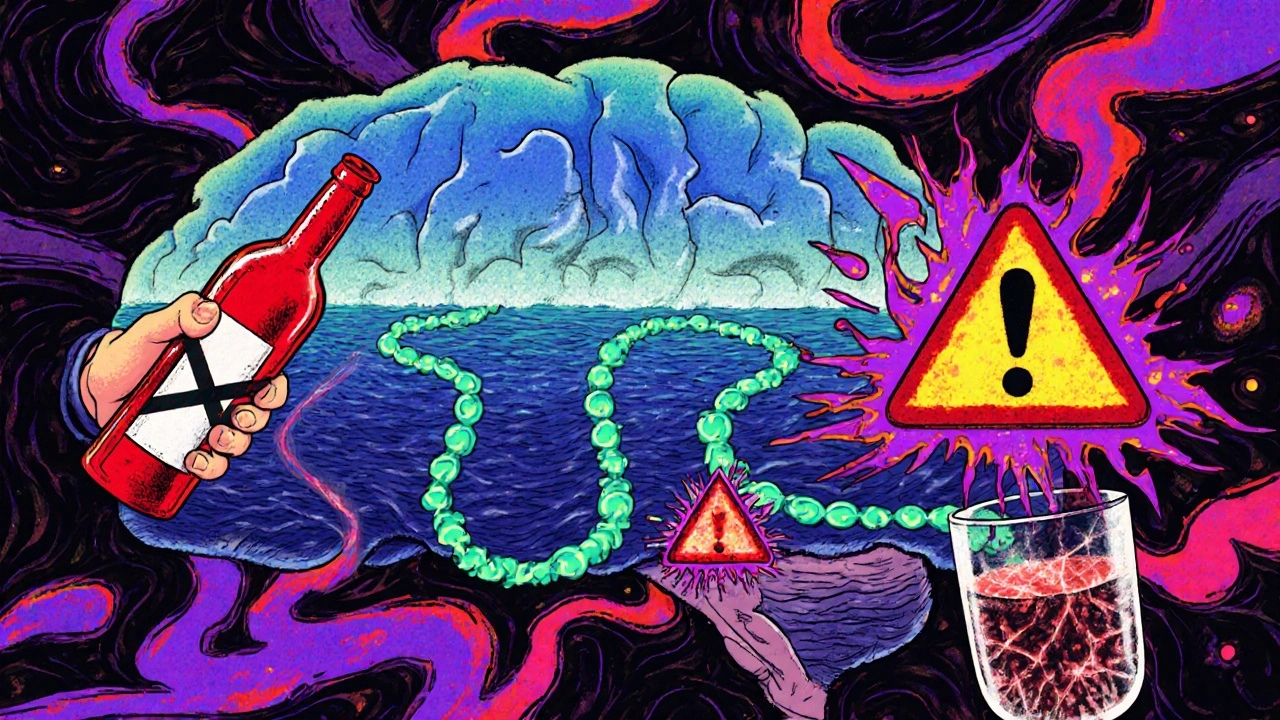AUD Treatment: What Works, What Doesn’t, and What to Ask Your Doctor
When someone struggles with alcohol use disorder, a medical condition where drinking causes harm to health, relationships, or daily life. Also known as alcoholism, it’s not a lack of willpower—it’s a brain chemistry issue that needs real treatment. Many people think quitting cold turkey is the only way, but science shows that’s rarely enough. Effective AUD treatment combines medication, counseling, and support—and it works better when you know your options.
Three FDA-approved medications are at the core of most successful AUD treatment plans: naltrexone, a drug that blocks the pleasurable effects of alcohol, reducing cravings, acamprosate, which helps stabilize brain chemistry after stopping drinking, and disulfiram, a deterrent that makes drinking cause unpleasant reactions. Each works differently. Naltrexone is often chosen for people who still drink occasionally but want to cut back. Acamprosate helps those who’ve stopped and want to stay stopped. Disulfiram is for those who need a strong physical reminder not to drink. None cure AUD, but they dramatically improve success rates when used right.
What’s missing from most conversations? AUD treatment isn’t one-size-fits-all. A person with liver damage might not tolerate certain drugs. Someone with depression might need therapy alongside medication. And if you’re taking other meds—like statins, diuretics, or antibiotics—there could be dangerous interactions. That’s why knowing your full health picture matters. Many people quit because they tried one drug, had a side effect, and gave up. But switching to another medication, adjusting the dose, or adding counseling can turn things around. Real progress happens when treatment is personalized, not generic.
The posts below cover real cases, comparisons, and hidden risks you won’t find in brochures. You’ll see how drugs like hydrochlorothiazide can worsen swelling in people with AUD, how liver supplements might interact with recovery meds, and why some antibiotics are safer than others during treatment. These aren’t theoretical discussions—they’re lessons from people who’ve been there. Whether you’re asking for help for yourself or someone else, this collection gives you the practical, no-fluff facts you need to make smarter choices.
Medications for Alcohol Use Disorder: How They Reduce Relapse Risk - and When They Don’t
Medications for alcohol use disorder can reduce relapse risk - but only if chosen correctly and taken consistently. Learn how naltrexone, acamprosate, and disulfiram work, who they help most, and why so many people stop taking them.
